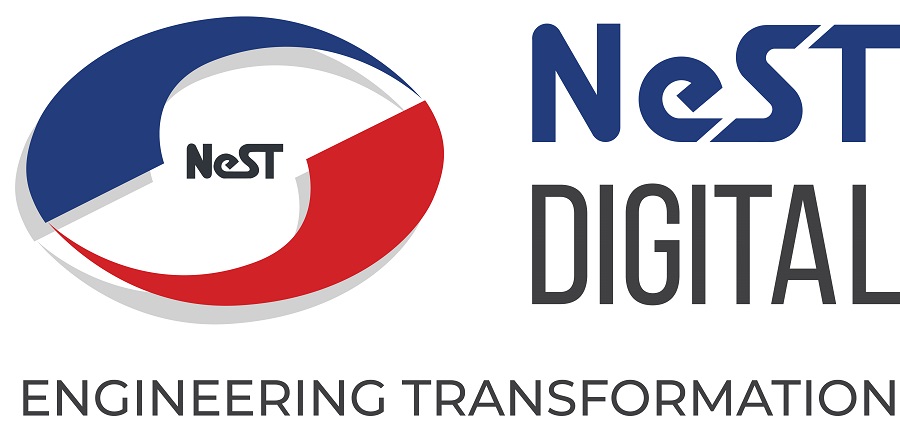THIRUVANANTHAPURAM:
Kerala is looking to build on its success in software startups by rolling out a new set of policies to create a similar ecosystem for hardware that will leverage the state’s advantages in terms of skilled human resources, entrepreneurial culture and high consumption, to set up a global hardware and electronics manufacturing hub.
The Government of Kerala has already made clear its intent of promoting Electronics Hardware manufacturing in the state through policy initiatives, including budget declarations on setting ups hardware parks and funding for EMCs.
The state government had earlier brought out a ESDM policy to boost the sector in the state. It envisions turning Kerala into preferred destination for ESDM investment and a leader in electronics design and embedded software, through skill development for ready-to-absorb manpower; promoting start-ups and innovation; and creating quality infrastructure for manufacturing.
As a follow up to the Budget declaration and the Electronics and IT policy of 2017, the Electronics and Hardware Mission was set up to coordinate the activities of multiple agencies working in the sector; and to create a single point of contact for various strategic projects and investment proposals.
The Kerala Electronics and Hardware Mission on Monday submitted a well-researched and detailed report to the government outlining the potential, challenges and roadmap for the Electronics System Design & Manufacturing (ESDM) sector.
The “Roadmap for Hardware Manufacturing in Kerala” was handed over to Chief Minister Pinarayi Vijayan by Dr. Jayasankar Prasad C, special officer for the Kerala Hardware Mission. M. Sivasankar, IT Secretary, was present on the occasion.
“Overall, the report indicates a potential for Kerala to leverage its strengths in human resources, startup ecosystem, high consumption and a proactive policy to establish a manufacturing hub in electronics and related hardware” said Sivasankar.
“A wide network of experienced professionals from the state in key positions and their willingness to support the cause is an added advantage. But Kerala needs to make a quick move to grab the first mover advantage and to counter the incentives offered by competing locations in the country,” he added.
Understanding Challenges
The Mission’s first task was to map the Electronics & Hardware companies across the state and survey them to understand challenges and propose schemes based on their real needs. Questionnaire surveys, workshops and consultations with industry experts and associations were carried out to identify the key ‘pain areas’ and potential growth areas.
“The objectives of the study were to identify the key players in the ESDM ecosystem in the state, create the inventory of assets in electronics manufacturing and identify core competencies that can be developed,” said Dr Jayasankar.
Among the concerns that came to the fore were that local projects are not buying from local manufacturers, and that there is a need for a “Kerala First” policy.
Also highlighted were issues such as the lack of proper facilities within Kerala for certification and testing, like NABL accredited labs or test facility for EMI/EMC compliance etc. The gap between the policy and actual implementation was cited as a concern and demands were put forward for a directory of services related hardware available in Kerala (such as PCB manufacturing, assembling etc).
A quarter (25%) of the companies surveyed urged more investment into infrastructure, 22% requested for innovation/R&D support, 23% wanted govt. orders for their company products and 20% said they need incentives for local manufacturing.
Key Advantages
Kerala’s import-dependent, consumption-driven economy could potentially leverage the high aggregated domestic demand to grow its internal manufacturing system, the report noted.
Kerala has a natural advantage over other states in terms of relatively more equitable wealth distribution, excellent social infrastructure and social safety programs that support the creation of a regional manufacturing hub. It also has higher wages and worker related costs compared to other regions, but the availability of skilled manpower and better socio-political climates favours high-end manufacturing in niche areas. If such units are given an initial boost by providing early market in government-driven projects, they could reach the threshold to achieve a sustainable model, the report said.
Exploring Opportunities
Kerala is betting heavily on electric mobility and this gives a huge opportunity for attracting manufacturing to the state. The projects linked with converting state-owned Kerala Automobiles Limited (KAL) to an Electric Vehicle (EV) manufacturing line for two and three wheelers have evinced good response from the industry.
ICT hardware and peripherals are also a good option as the state is investing heavily on improving its digital presence in e-governance and related activities. There have been extensive consultations in the area of EVs, IT hardware and components with industrial bodies, OEMs and experts from Japan and Taiwan, and the indications are encouraging, said Dr Jayasankar.
The possibility of leveraging the existing strengths to enable a power electronics cluster in the state is also being explored. There are large players who have shown interest in relocating the manufacturing operations to the state taking a cue from the successes of companies such as SFO, Amphenol FCI OEN, OEN Connectors and V Guard. Companies like UST Global who have been supporting large OEMs in testing and validation have indicated interest in joining hands with the government to enable the ecosystem.
An MoU with Intel and UST for exploring the potential for PC and Server manufacturing in the state is on the anvil. Once the feasibility is established, a joint venture with government and private players could be a possibility.
Creating the Ecosystem
Since manufacturing units cannot function in isolation, the Kerala government hoping to develop and enable a holistic ecosystem for ESDM. Ongoing initiatives target improving the macro-infrastructure of the state, ensuring quality and skilled manpower availability, encouraging and inculcating start-up culture and entrepreneurship in the high-tech areas of ESDM.
For capacity building the state is launching skilling programs under Additional Skill Acquisition Programme (ASAP), Kerala Academy for Skills Excellence (KASE) and ICT Academy of Kerala (ICTAK).
The Kerala Start-up Mission and other incubators including the electronics incubator Maker Village and Medical devices Incubator TImEd are laying roadmaps for entrepreneurial development in this area. The maker culture in Kerala as a whole has been strengthened by the Fab Lab network set up with the support of MIT.
Some of the hardware start-ups from Kerala have been getting international recognition and acclaim, giving an overall boost to the ecosystem.
KELTRON
The report identifies KELTRON, India’s first and the largest electronics corporation in the state sector, as having a pivotal role in the process. Its active involvement will ensure that there is sufficient government backing for the project and it will provide a great opportunity for KELTRON to regain its position as a key player in the electronics manufacturing in the state as well as in the country.




